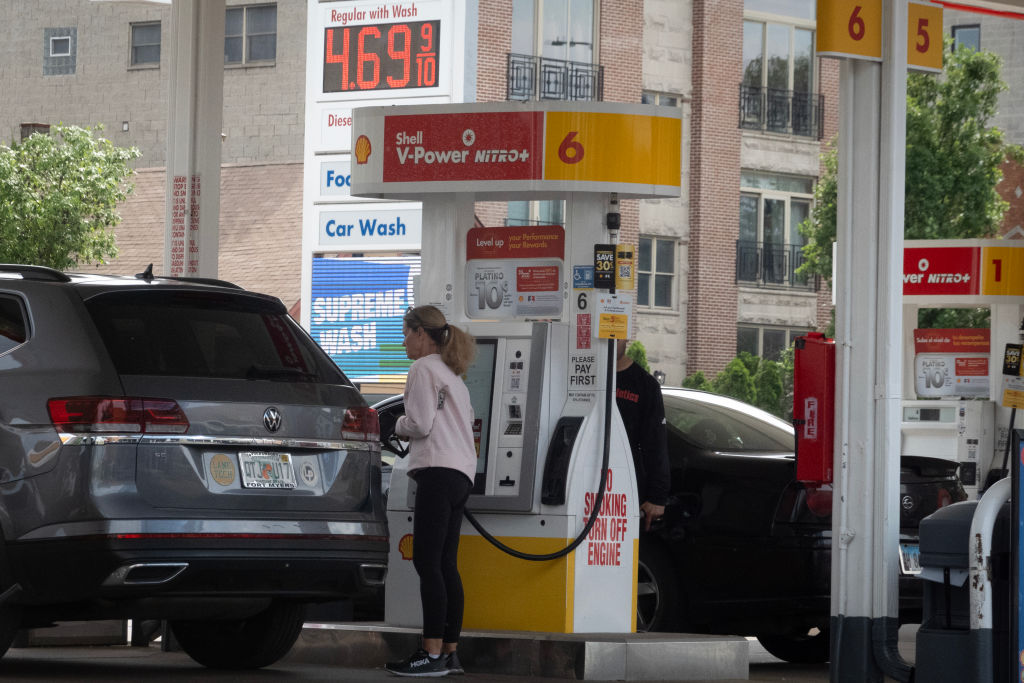A viral online post compares interest rates and gas prices before and after Biden’s presidency. “Remember how on November 5th, 2020 gas was $1.80 a gallon and interest rates were 2.75%,” the post reads. Another reads: “Friendly PSA: Gas Was $2.30 A Gallon And Interest Rates Were 2.75% Back On January 20th, 2021.”
The posts’ broad claims are correct: Interest rates and gas prices were lower before Biden’s presidency. However, the numbers cited in the post are not precise and lack some context.
Interest rates.
The posts appear to reference the 30-year fixed mortgage rate—the interest rate at which borrowers can repay a 30-year home loan. According to Freddie Mac’s Primary Mortgage Market Survey, the average 30-year fixed mortgage rate in the U.S. was 2.78 percent on November 5, 2020, close to the 2.75 percent figure cited in the posts. On January 21, 2021—the closest date to January 20 with data available—the average 30-year rate was 2.77 percent. Today, the average 30-year mortgage rate is significantly higher than in 2020 and 2021: 6.44 percent on October 17, 2024.
Gasoline.
The posts also claim that gas cost only $1.80 per gallon in November 2020 and $2.30 per gallon in January 2021. These numbers are less precise than the posts’ interest rate figures, but are in the ballpark of average gas prices during those periods. Gas prices can vary significantly in different regions of the country depending on factors such as distance from supply, retail competition, and local regulations. According to the U.S. Energy Information Administration’s (EIA) Gasoline and Diesel Fuel Update, the average gasoline price among 900 retail gas stations on November 9, 2020, was $2.004. On January 25, 2021, the average price had risen to $2.298. The EIA’s most recent data, collected on October 21, 2024, found an average gas price of $3.044.
Broad trends.
While interest rates and gas prices are higher today than they were in 2020, presidential administrations also face broad macroeconomic trends that are outside of their control, so not all price fluctuations can be attributed directly to a president. Between 2020 and 2022, for example, most countries across the developed world faced high inflation rates as the COVID-19 pandemic disrupted global supply chains. In 2022, the Russian invasion of Ukraine sparked a global increase in energy costs.
“Presidents get more credit and more blame for the economy than they deserve,” David Wessel, director of the Brookings Institution’s Hutchins Center on Fiscal and Monetary Policy told The Dispatch Fact Check. “We wouldn’t have had the surge in inflation if we hadn’t had a pandemic and then the Russian invasion of Ukraine. That’s what drove inflation—including gasoline prices and mortgage rates up … I find apportioning the blame between Trump and Biden quite difficult.”
Some economists believe that the Biden administration bears some responsibility for inflationary pressure, however. “While some inflation and interest rate rises were inevitable coming out of the pandemic, Biden added roughly 3 percentage points to inflation with excessive stimulus, trade restrictions, and pro-union regulations,” Brian Reidl, economist at the Manhattan Institute, told The Dispatch Fact Check. “The harder Biden pushed the inflationary gas pedal, the harder the Federal Reserve had to slam the brake by hiking interest rates—which in turn contributed to higher mortgage rates.”
If you have a claim you would like to see us fact check, please send us an email at factcheck@thedispatch.com. If you would like to suggest a correction to this piece or any other Dispatch article, please email corrections@thedispatch.com.










Please note that we at The Dispatch hold ourselves, our work, and our commenters to a higher standard than other places on the internet. We welcome comments that foster genuine debate or discussion—including comments critical of us or our work—but responses that include ad hominem attacks on fellow Dispatch members or are intended to stoke fear and anger may be moderated.
With your membership, you only have the ability to comment on The Morning Dispatch articles. Consider upgrading to join the conversation everywhere.